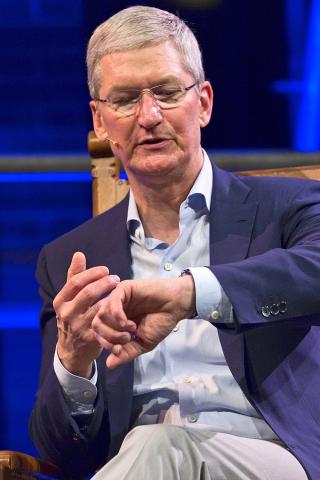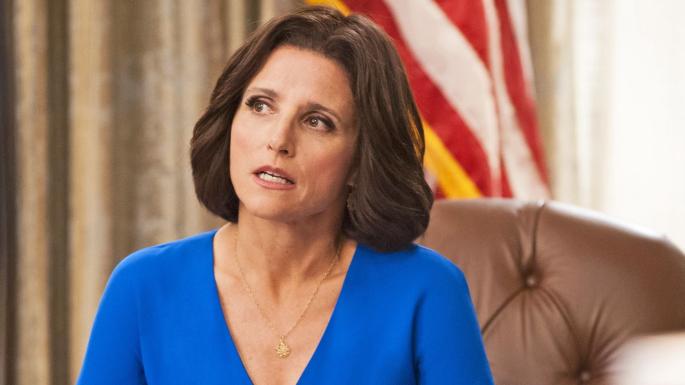Buffetted by faltering iPhone sales, the tech giant is eyeing content producers like Time Warner
As Eddy Cue’s limousine inched through the New York traffic, he had plenty of time to perfect his pitch.
Late last year, the head of Apple’s iTunes flew in from the west coast. His destination was a skyscraper with sweeping views of Central Park, the headquarters of entertainment giant Time Warner.
The meeting was ostensibly to explore how Apple could forge closer ties with the owner of Warner Brothers movie studio and HBO, home of hit shows such as Game of Thrones , The Sopranos and Veep. Cue had long dreamed of launching a TV and film service for owners of Apple’s iPhones and iPads. But the project had stalled: big studios were alive to the dangers of licensing their movies and shows to the powerful Silicon Valley interloper.
After settling his paunchy frame into his seat at Time Warner’s boardroom table, Cue tried a much more audacious gambit to get his hands on the content Apple needs to keep customers buying its pricy gadgets. The 51-year-old tested the waters for a takeover of the $54bn ( 37bn) Time Warner.
Although the tentative talks did not result in a firm offer, the revelation that they took place underlines Apple’s increasingly fraught search for ways to revive growth.
Almost any chief executive on the planet would kill for the conundrum facing Apple boss Tim Cook. With a cash hoard of more than $200bn and the iPhone, one of the most profitable consumer products the world has known, Cook would appear to have little cause for fear.
However, the company’s remarkable run since launching its flagship smartphone in 2007 looks to be coming to an end. Last month Apple announced that, for the first time in its history, it had suffered a year-on-year fall in iPhone sales.
Jitters in China’s economy meant 51m of Apple’s most-lucrative product were sold between January and March – down 10m on the same quarter in 2015. Revenues over the period fell 11% to $51bn – the first drop in quarterly revenue on an annual basis since 2003.
That mirrors broader trends in the hardware industry. The smartphone business today is “eerily reminiscent of the PC of 10 years ago”, said Neil Campling, a tech analyst at stockbroker Northern Trust Securities. “Consumers that have taken on these new devices as they evolved are likely to be reaching a form of saturation. This is ‘screen fatigue’. Exhaustion.”
Fatigue has also set in for investors in Apple. Its share price has plunged by a quarter in a year. The turmoil spurred legendary investor Warren Buffett into action: the so-called Sage of Omaha snapped up a $1bn stake in Apple.
To many observers, there was no more telling sign that Apple has moved into a more pedestrian phase. Buffett is a “value” investor who prizes steady dividend streams and does not like to gamble on long shots. His two other prominent tech investments are IBM and Microsoft – redoubtable technology companies but hardly at the vanguard of the seismic changes sweeping through the industry.
In the wake of last month’s results, Cook made a startling admission: he was on the lookout for a big takeover. The Silicon Valley giant would “definitely buy something larger than we’ve bought thus far” if the right target came into its sights.
“Our test is not on the size. It’s more about strategic fit and whether it’s a great technology and great people. We continue to look and we stay very active in the mergers and acquisitions market,” Cook said.

Apple boss Tim Cook said the tech giant was on the lookout for a big acquisition
Over the years Apple has acquired dozens of small start-ups with promising technology or teams of engineers. The cores of the iTunes online store and the digital assistant Siri were initially formed outside Apple before being acquired. To date, Apple’s largest deal has been the $3bn takeover of Beats Electronics, the headphones maker and music streaming company founded by hip-hop artist Dr Dre – and that was small change for the world’s largest company.
Cook’s willingness to stalk larger prey reflects the new emphasis he has placed on wringing extra cash from Apple’s huge user base.
More than 1bn of its devices now connect to iTunes, the App Store and its music streaming and mobile payments platforms.
For Apple, having the most alluring array of apps, songs and video offerings is tasty bait for users. But income from the App Store and other services could become a deep well of profits. Between January and March, these revenues grew by 20% to $6bn.
Cue, a 27-year Apple veteran, heads this fast-growing service business. He was instrumental in launching the Apple Music service last year after the Beats acquisition and has worked on a streaming film and TV offering to rival Netflix and Amazon Prime.
He has tried to launch an internet-only TV package in the US that would have been about half the price of a cable TV subscription. But he failed to secure a deal over live channels with media owners such as 21st Century Fox, whose executive co-chairman Rupert Murdoch is also executive chairman at The Sunday Times owner News Corp.
In streaming, Netflix and Amazon have leaped ahead after buying internet rights from producers such as Fox, Time Warner, ITV, and the BBC. They have also committed billions to produce their own shows. There is so much for people to see on these platforms now, with websites such as likewise.com providing background on new releases that streaming services such as Amazon Prime has to offer, you can check this out to see for yourself.
Apple has already embarked on this journey, albeit tentatively: Dr Dre is making a TV series for Apple Music. Having access to Time Warner’s vast library of film and TV series, particularly HBO’s roster of high-end dramas, would help Apple play catch-up. The Silicon Valley colossus has also been mooted as a potential buyer of Disney.
However, its desire to bulk up on content would not alone justify splashing out for Time Warner, which traces its roots back to the early days of the film business in the 1920s. Warner Bros released the first feature length talking film, The Jazz Singer, in 1927.
Like other US TV giants, its market value has sunk over the past year as cable subscribers cancel pricy subscriptions in favour of Netflix and Amazon. The loss of income has been partly offset by licensing fees received from the streaming giants.
Some experts believe owning the Time Warner stable, which also includes cable TV stalwarts such as CNN and Turner Classic Movies, would give Apple extra leverage in talks with other media owners. But it could just as easily complicate discussions with studios, which would be keen to repel a new and deep-pocketed competitor.
Some analysts see greater merit in a swoop on Netflix, which has a market value of $45bn. With 82m global users, the streaming giant has a much broader distribution network than Time Warner. However, it made profits of just $28m in the first three months of the year, and its drama roster is minuscule compared with Time Warner’s.
On its own, neither deal would solve Apple’s principal problem: how to counter the slowdown in iPhone sales. The phone still rakes in about two-thirds of Apple’s profits.
A greater concern is that Apple could be left behind as a wind of change blows through the tech sector. Google, Facebook and Amazon are investing heavily in artificial intelligence – an area in which Apple is underpowered.
The goal is to create intelligent, voice-activated digital assistants such as Amazon’s Alexa, which caters to users’ every wish, without having to touch a device screen. For Apple, that is a nightmare scenario: it would weaken the ties it has created between its customers and their devices.
For now, Apple remains the king of tech. But its crown has started to slip.

